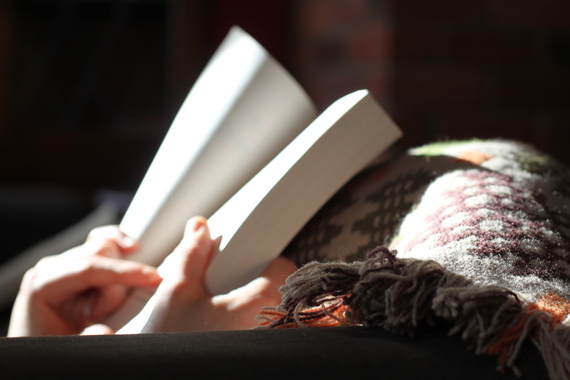
By the time I turned thirteen, I had attended five schools, in four cities, on three continents. My parents were professors who had me late in life and, perhaps because of this, I am an only child.
The way they tell it, I was relatively portable at first: able to be uprooted and introduced into the soil of some new place like a resilient plant species. But as I grew, I became more withdrawn, and moving got harder.
When I was twelve, my dad accepted a job in Saudi Arabia. I went to an American school in Riyadh, which was a largely unpleasant experience in that I was often bullied. The first year was difficult emotionally, and my grades tumbled as a result. I don't know whether all this was a function of it being junior high, or whether it was this place in particular.
Still, the school had a nice little library, which I found redeeming, and a relief. Stories, especially series-fiction, had a way of anchoring me. Their characters were sturdy and loyal over the years, unmoved by the shifting terrain of my young life, unchanging no matter what part of the world I was in.
At that school, when the bell would ring, signaling recess or lunch, the kids would burst out of the building, scattering across the yard. But most days, I wouldn't join them. I'd slink around by the doors instead and, when the coast was clear, slip back inside, to sit in front of that library. I'd eat my lunch there. Sometimes, I'd read.
One day, it must have been a few months into the school year, I was sitting on the floor when the door unlocked suddenly. The librarian, a middle-aged woman with short brown hair and warm eyes, popped her head out. Her name was Mrs. P.
"Why aren't you outside, with the rest?" Mrs. P said.
I shuffled to my feet, probably looking guilty.
"This isn't really allowed," she said, "but would you like to come in?"
The answer was yes. And it was 'yes,' the next day, too, and the next. I don't know why she bent the rules like that. I guess she understood I needed a place to be.
Inside, we didn't talk much. Sometimes she'd glance at what I was reading, and make a comment about it, like: "oh, that's a good one," or something. A few months in though, she started setting aside stuff she thought I'd enjoy: books about friendless giants, and boys in faraway jungles; about traveling around the world in a big balloon. Books I had never heard of, and would not have thought to read myself. But if she suggested it, I gave it a shot, and in these ways, she guided my reading that year.
I would study Mrs. P from across the room; the way she organized books by number, stacking them lengthwise on a metal cart. I was aware of the privilege of her permission; grateful to be there, if only for an hour a day. I wish I had thanked her more fully for this.
I don't live in Saudi Arabia anymore. I'm far removed from that place, in many ways, but I do remember vividly, bits and pieces of my strange life there. I don't remember anyone more fondly than I remember Mrs. P.
These days, I'm an educator too, and even though the kids I teach are older, it seems to me they need the same thing that I did, back then. Kids, whatever the age, want to be seen, and heard; to be given permission to just be. No pretenses.
Does it matter what's being taught to them, or where, or even how? I don't think so. Not that much, at least. What matters is who's showing up in the room, caretaking the space, clearing it of discomfort and expectation and judgment. In my experience, if you take care of the space, the rest takes care of itself, somehow.
Kids, maybe people in general, don't learn much if they're in a state of panic or preoccupation; contracted, fearful, self-conscious. But get them to a place of calm, of acceptance and playfulness, and they'll open up for you. The learning will be deeper. The reading will be, too.
I think Mrs. P knew it was never really about the books. It was about her, and that library with its low ceilings and small wooden chairs. She made that space what it was. She carved out a place for me there, where I was free to sink into the page, still and unencumbered and utterly alive, simultaneously outside myself and cocooned within, breathing that thick, book-dust-air.
If only for an hour a day.
